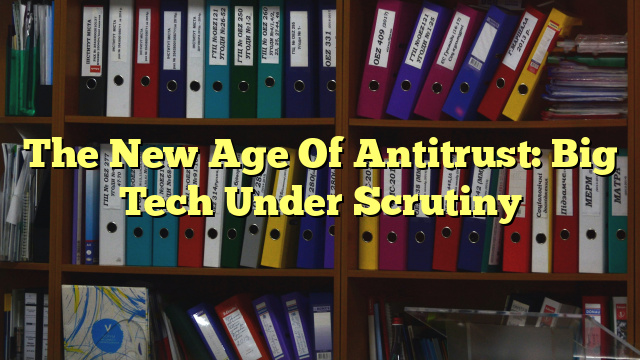The New Age of Antitrust: Big Tech Under Scrutiny
Table of Contents
Introduction
Big Tech companies like Google, Facebook, Amazon, and Apple have become household names and dominant players in the digital landscape. However, their growing power and influence have raised concerns about potential anticompetitive behavior and the need for antitrust regulation.
In recent years, governments and regulatory bodies around the world have started scrutinizing Big Tech’s practices and exploring ways to ensure fair competition and protect consumers.
Antitrust Legislation for 2023
In 2023, several countries are expected to introduce or strengthen antitrust legislation to address the challenges posed by Big Tech. These laws aim to promote competition, prevent monopolistic practices, and protect consumers’ interests.
The specific provisions of the legislation may vary from country to country, but common objectives include:
- Increasing scrutiny of mergers and acquisitions by Big Tech companies
- Imposing stricter regulations on data privacy and protection
- Enhancing transparency in algorithms and search rankings
- Ensuring fair treatment of third-party sellers on online platforms
Companies Violating Antitrust Laws
Several Big Tech companies have faced allegations and legal actions for violating antitrust laws. Some notable examples include:
- Google: The European Union fined Google multiple times for anticompetitive practices related to its search engine and advertising services.
- Facebook: The Federal Trade Commission (FTC) and several state attorneys general filed antitrust lawsuits against Facebook, accusing the company of using its market power to stifle competition.
- Amazon: The European Commission launched an investigation into Amazon’s potential abuse of dominance in online retail and the use of data from third-party sellers.
- Apple: The European Union is investigating Apple’s App Store practices and whether they give the company an unfair advantage over competitors.
The Need to Regulate Big Tech
The growing dominance of Big Tech companies has raised concerns about their impact on competition, innovation, and privacy. There are several reasons why regulation is deemed necessary:
- Market Power: Big Tech companies have amassed significant market power, which can lead to unfair competition and hinder smaller players from entering the market.
- Data Privacy: The collection and use of vast amounts of user data by Big Tech companies raise concerns about privacy and potential misuse of personal information.
- Consumer Protection: Antitrust regulation aims to protect consumers from monopolistic practices, ensuring fair prices, quality, and choice.
- Innovation: By promoting competition, antitrust regulation can foster innovation and prevent the stifling of new ideas and startups.
Understanding Antitrust
Antitrust, also known as competition law, is a legal framework that aims to promote fair competition and prevent monopolistic practices. It seeks to ensure that markets remain competitive, with multiple players vying for consumers’ business.
In simple terms, antitrust laws are designed to prevent companies from gaining too much power and using it to stifle competition, harm consumers, or manipulate markets.

